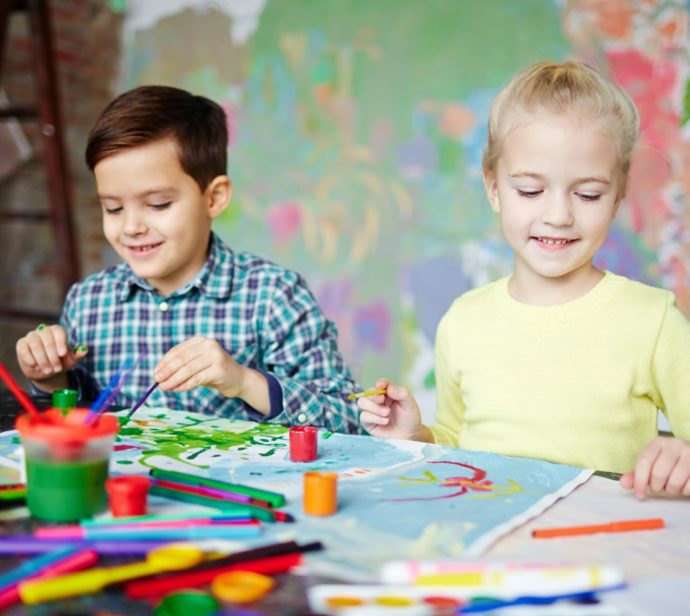Starting school can be daunting for both parent and child—but there are steps you can take to make the transition as smooth as possible as you prepare them to start the new school year. Long before your child walks through a classroom door, you can begin instilling the skills and knowledge they need to succeed.
Many things influence how well children learn, develop and perform in school. To have the best possible chance for success, children need a general knowledge of the world around them; basic language, comprehension and problem-solving skills; and solid emotional and physical well-being. It’s never too early to start cultivating these traits withing your children.
Academic Readiness
Develop a foundation for success in the classroom
Before children start school, they should have a basic understanding of themselves, of the people, places and things around them, and how to interact with the world. This is the foundation on which to build literacy, math and other skills that will define their academic success for many years to come.
Literacy
To prepare your child to learn how to read and write, first foster their knowledge of letters and sounds, as well as their listening and speaking skills.
- Read to your child daily. Talk about what you’ve read.
- Check out books and attend Story time at your local library.
- Practice writing letters, especially the letters in your child’s name.
- To make practicing letters more fun and multi-sensory, have your child write in shaving cream in the bathtub, sugar in a cake pan or in finger paint.
- Have regular conversations. Point out when you are speaking vs. listening to reinforce the rules of conversation.
- Encourage your child to listen and respond to other adults and family members.
- Play rhyming games. As you are going up the stairs, name one word that rhymes with “cat” for each step as you go up.
- Sing the alphabet song.
Patterns and Recognition
To prepare your child to excel in math, first foster their ability to identify patterns and recognize basic shapes and colors.
- Make up dances to demonstrate concepts like high and low, backward and forward or under and over.
- Sing rhyming songs and clap to the beat.
- Play with puzzles and games that require counting and problem solving.
- Teach basic colors by pointing and naming objects like green trees, red apples or blue coats.
- Help your child draw, cut and paste different shapes.
- Visit the zoo, park, grocery store, post office and pet shop.
- Talk about sights and sounds.
- Point out things that are different, the same, bigger, smaller and opposite.
- Count throughout the day—the crackers your child is eating or the socks that come out of the dryer.
- Make a game of finding the numbers you see all around—on food boxes or street signs. Ask your child to say the name of each one.
Desire to Learn
Children take their cues from you. If you are curious, your child will be curious. If you are having fun trying new things, so will they. Praise your child when they learn, create or share something new. Seeing that you are proud of their achievements gives your child the confidence and desire to learn more.





